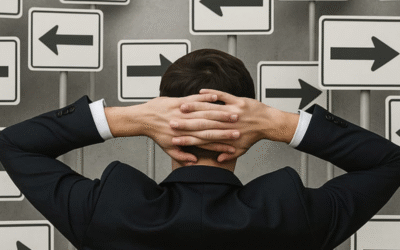Quizzicle
Quizzicle, our newest initiative focuses on testing your consulting and analytical skills.
Put your best foot forward and unlock your potential.
We upload new quizzes every Monday!
expert
Guesstimate Cheat Sheet
Useful numbers for guesstimates and market sizing.
The Business of Freebies
Free electricity, loan waivers, direct cash transfers — are these enablers of social justice or tactical vote banks?
In India’s evolving electoral landscape, the line between welfare and freebies is becoming increasingly blurred. This article dives deep into the economics, political incentives, and real-world consequences of the freebie culture, while offering global perspectives and actionable solutions for policymakers.
Can India chart a path that safeguards both social equity and economic sustainability? Check out this article by Daksh Kalra as he unpacks the political economy behind India’s rising freebie culture, its long-term impact on governance and fiscal health, and the global lessons it offers.
The Halo and Horn Effects: How One Trait Shapes Our Judgments
Our initial impressions often hold more power than we realise. A firm handshake, articulate speech, or a confident introduction can lead us to overestimate a person’s abilities. Conversely, a single misstep may unfairly overshadow their true potential. These cognitive shortcuts, known as the Halo and Horn effects, deeply influence our decisions in workplaces, classrooms, and even the marketplace.
Such biases can result in unfair hiring, skewed evaluations, and poor consumer choices. But with greater awareness and structured methods like blind assessments, rotational reviews, and self-reflection, we can reduce their impact and make more objective, evidence-based judgments.
In this piece, Chinmay Chirag explores how one trait can shape our entire perception of a person and shares clear, actionable ways to overcome these hidden biases in high-stakes environments.
The Paradox of Choice: Does More Freedom Make Us Less Happy?
The Paradox of Choice: Is Too Much Freedom Making Us Unhappy?
We live in a world overflowing with options: internships, career paths, products, even identities. While this abundance promises freedom, it often leads to decision fatigue, anxiety, and second-guessing.
Psychologist Barry Schwartz calls this the Paradox of Choice: when having too many options makes us less happy, not more.
But what if the answer lies in thinking like a consultant? By using structured tools, frameworks and constraints, we can cut through the noise, make better choices and feel more confident.
Check out Aditya Duggal’s article as he delves deep into the Paradox of Choice and explores how applying consulting principles to everyday life can help navigate complexity and bring clarity.
ADVANCED
Guesstimate Cheat Sheet
Useful numbers for guesstimates and market sizing.
The Business of Freebies
Free electricity, loan waivers, direct cash transfers — are these enablers of social justice or tactical vote banks?
In India’s evolving electoral landscape, the line between welfare and freebies is becoming increasingly blurred. This article dives deep into the economics, political incentives, and real-world consequences of the freebie culture, while offering global perspectives and actionable solutions for policymakers.
Can India chart a path that safeguards both social equity and economic sustainability? Check out this article by Daksh Kalra as he unpacks the political economy behind India’s rising freebie culture, its long-term impact on governance and fiscal health, and the global lessons it offers.
The Halo and Horn Effects: How One Trait Shapes Our Judgments
Our initial impressions often hold more power than we realise. A firm handshake, articulate speech, or a confident introduction can lead us to overestimate a person’s abilities. Conversely, a single misstep may unfairly overshadow their true potential. These cognitive shortcuts, known as the Halo and Horn effects, deeply influence our decisions in workplaces, classrooms, and even the marketplace.
Such biases can result in unfair hiring, skewed evaluations, and poor consumer choices. But with greater awareness and structured methods like blind assessments, rotational reviews, and self-reflection, we can reduce their impact and make more objective, evidence-based judgments.
In this piece, Chinmay Chirag explores how one trait can shape our entire perception of a person and shares clear, actionable ways to overcome these hidden biases in high-stakes environments.
The Paradox of Choice: Does More Freedom Make Us Less Happy?
The Paradox of Choice: Is Too Much Freedom Making Us Unhappy?
We live in a world overflowing with options: internships, career paths, products, even identities. While this abundance promises freedom, it often leads to decision fatigue, anxiety, and second-guessing.
Psychologist Barry Schwartz calls this the Paradox of Choice: when having too many options makes us less happy, not more.
But what if the answer lies in thinking like a consultant? By using structured tools, frameworks and constraints, we can cut through the noise, make better choices and feel more confident.
Check out Aditya Duggal’s article as he delves deep into the Paradox of Choice and explores how applying consulting principles to everyday life can help navigate complexity and bring clarity.
INTERMEDIATE
Guesstimate Cheat Sheet
Useful numbers for guesstimates and market sizing.
The Business of Freebies
Free electricity, loan waivers, direct cash transfers — are these enablers of social justice or tactical vote banks?
In India’s evolving electoral landscape, the line between welfare and freebies is becoming increasingly blurred. This article dives deep into the economics, political incentives, and real-world consequences of the freebie culture, while offering global perspectives and actionable solutions for policymakers.
Can India chart a path that safeguards both social equity and economic sustainability? Check out this article by Daksh Kalra as he unpacks the political economy behind India’s rising freebie culture, its long-term impact on governance and fiscal health, and the global lessons it offers.
The Halo and Horn Effects: How One Trait Shapes Our Judgments
Our initial impressions often hold more power than we realise. A firm handshake, articulate speech, or a confident introduction can lead us to overestimate a person’s abilities. Conversely, a single misstep may unfairly overshadow their true potential. These cognitive shortcuts, known as the Halo and Horn effects, deeply influence our decisions in workplaces, classrooms, and even the marketplace.
Such biases can result in unfair hiring, skewed evaluations, and poor consumer choices. But with greater awareness and structured methods like blind assessments, rotational reviews, and self-reflection, we can reduce their impact and make more objective, evidence-based judgments.
In this piece, Chinmay Chirag explores how one trait can shape our entire perception of a person and shares clear, actionable ways to overcome these hidden biases in high-stakes environments.
The Paradox of Choice: Does More Freedom Make Us Less Happy?
The Paradox of Choice: Is Too Much Freedom Making Us Unhappy?
We live in a world overflowing with options: internships, career paths, products, even identities. While this abundance promises freedom, it often leads to decision fatigue, anxiety, and second-guessing.
Psychologist Barry Schwartz calls this the Paradox of Choice: when having too many options makes us less happy, not more.
But what if the answer lies in thinking like a consultant? By using structured tools, frameworks and constraints, we can cut through the noise, make better choices and feel more confident.
Check out Aditya Duggal’s article as he delves deep into the Paradox of Choice and explores how applying consulting principles to everyday life can help navigate complexity and bring clarity.
NOVICE
Guesstimate Cheat Sheet
Useful numbers for guesstimates and market sizing.
The Business of Freebies
Free electricity, loan waivers, direct cash transfers — are these enablers of social justice or tactical vote banks?
In India’s evolving electoral landscape, the line between welfare and freebies is becoming increasingly blurred. This article dives deep into the economics, political incentives, and real-world consequences of the freebie culture, while offering global perspectives and actionable solutions for policymakers.
Can India chart a path that safeguards both social equity and economic sustainability? Check out this article by Daksh Kalra as he unpacks the political economy behind India’s rising freebie culture, its long-term impact on governance and fiscal health, and the global lessons it offers.
The Halo and Horn Effects: How One Trait Shapes Our Judgments
Our initial impressions often hold more power than we realise. A firm handshake, articulate speech, or a confident introduction can lead us to overestimate a person’s abilities. Conversely, a single misstep may unfairly overshadow their true potential. These cognitive shortcuts, known as the Halo and Horn effects, deeply influence our decisions in workplaces, classrooms, and even the marketplace.
Such biases can result in unfair hiring, skewed evaluations, and poor consumer choices. But with greater awareness and structured methods like blind assessments, rotational reviews, and self-reflection, we can reduce their impact and make more objective, evidence-based judgments.
In this piece, Chinmay Chirag explores how one trait can shape our entire perception of a person and shares clear, actionable ways to overcome these hidden biases in high-stakes environments.
The Paradox of Choice: Does More Freedom Make Us Less Happy?
The Paradox of Choice: Is Too Much Freedom Making Us Unhappy?
We live in a world overflowing with options: internships, career paths, products, even identities. While this abundance promises freedom, it often leads to decision fatigue, anxiety, and second-guessing.
Psychologist Barry Schwartz calls this the Paradox of Choice: when having too many options makes us less happy, not more.
But what if the answer lies in thinking like a consultant? By using structured tools, frameworks and constraints, we can cut through the noise, make better choices and feel more confident.
Check out Aditya Duggal’s article as he delves deep into the Paradox of Choice and explores how applying consulting principles to everyday life can help navigate complexity and bring clarity.



